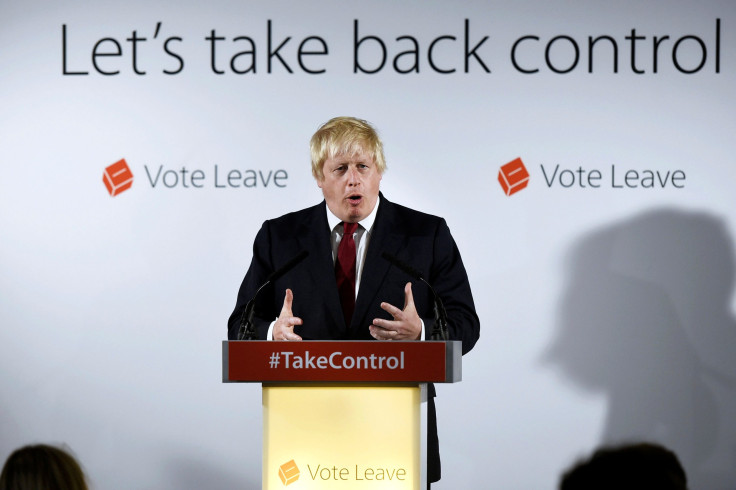UK Will Retain Access To The EU Single Market: Brexit Leader Johnson

Britain will continue to have access to the European Union's single market despite voting to leave the bloc, leading Brexit campaigner and favorite to become the country's next prime minister Boris Johnson said in a newspaper article on Sunday.
Britain's shock decision to leave the EU has thrust Johnson into the gaze of global financial markets, who are eager to see what his plan for a post-Brexit Britain looks like and how, if he does become leader, it will affect the country's trade with the rest of the world.
Johnson said Britain could now forge a relationship with the EU based on free trade and partnership rather than a federal system, and that Britain would also be able to do free trade deals with growth economies outside the EU.
"There will continue to be free trade, and access to the single market," Johnson wrote in a regular column for the Daily Telegraph newspaper, adding that there was "no great rush" for Britain to extricate itself from the EU.
He did not set out any details of how the arrangement would work, but suggested Britain would not accept free movement, saying the government would be able to implement an immigration policy which suited the needs of business and industry.
Johnson said the negative consequences of Brexit were being "wildly overdone" and that Bank of England Governor Mark Carney, who came under fire from some Brexit campaigners ahead of the referendum for flagging the risks of leaving the bloc, should continue in his job.
"The economy is in good hands," he said, praising "in" campaigners Prime Minister David Cameron and finance minister George Osborne for the work they have done to reduce public spending.
"Most sensible people can see that Bank of England Governor Mark Carney has done a superb job — and now that the referendum is over, he will be able to continue his work without being in the political firing-line."
Immigration
Johnson is seen as the front-runner to replace his schoolmate and once close friend Cameron, who announced he would resign after the British public voted against him by backing Brexit.
Cameron has said he will stay on until October. No one has yet put themselves forward to replace him but the new leader is expected to come from the Euroskeptic camp.
Several sources believe Johnson, who as London mayor built a broad appeal beyond the ruling Conservative Party, threw his support behind the "out" campaign in a calculated move to boost his chances of replacing Cameron.
Johnson, who abandoned his support of immigration to win more support for the "out" campaign, said he did not believe those who voted to leave the bloc were driven mainly by concerns over immigration, saying sovereignty was the biggest reason.
EU citizens in Britain would have their rights protected, as would Britons living in the EU, he said, while British people would still be able to go and work, live and travel in the EU.
Johnson also said he did not detect "any real appetite" for another Scottish independence referendum, despite the country's First Minister Nicola Sturgeon saying it was highly likely if it is the best option to keep Scotland in the bloc.
Scotland, a nation of 5 million people, voted to stay in the EU by 62 to 38 percent in Thursday's referendum, putting it at odds with the United Kingdom as a whole, which voted by 52 to 48 percent in favor of an exit from the bloc, or Brexit.
© Copyright Thomson Reuters 2024. All rights reserved.




















